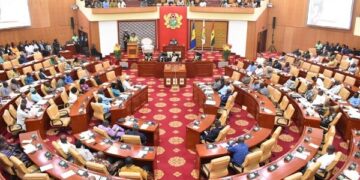Majority Leader in Parliament, Osei Kyei-Mensah-Bonsu, is suggesting postponement of the tax exemption law, emphasizing the need to bolster the national treasury.
Expressing concerns about Ghana’s current fiscal position, he questioned the sustainability of continuously granting tax exemptions.
“The country is at a critical junction, and we need to seriously reconsider how long we can afford to grant tax exemptions,” remarked Osei Kyei-Mensah-Bonsu during the 2023 post-budget workshop for Members of Parliament on Saturday.
While last year saw the passage of the Tax Exemption Bill into law, which outlined clear eligibility criteria and established mechanisms for monitoring and enforcement, lingering concerns persist about the efficacy of the tax exemption regime.
The Majority Leader stressed the necessity for further scrutiny to identify and rectify any gaps in the system.
“Should the state rethink this law to enhance government revenue?” questioned Kyei-Mensah-Bonsu, prompting a reconsideration of the tax exemption policy for potential improvements.
The issue of tax exemptions in Ghana has been of public concern, with citizens expressing unease about the lack of tangible returns despite the imposition of higher taxes on individuals.
Public sector workers, in particular, are urging the government to halt and reassess these exemptions, citing their adverse impact on state revenue.
Ghana’s tax revenue, at only 14 percent of GDP, is considerably lower than many African countries, contributing to growing budget deficits and national debt. The call for a review of the tax-GDP ratio and an exploration of alternative revenue sources, including direct taxes, has gained momentum.
Arguing the need for a balanced approach, public workers have emphasized the importance of addressing revenue losses incurred through questionable tax exemptions. Specifically, they pointed out that many exemptions granted to Export Processing Zones (EPZ) enterprises lack economic or social justification.
The Majority leader called for a comprehensive evaluation of both taxation policies and exemptions to achieve fiscal sustainability.




















































































